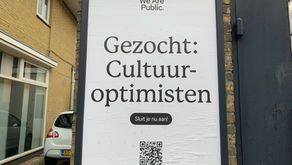Klezmer via Benslow
- Judith Weir
- Jul 10, 2020
- 2 min read

This year’s Benslow Music composition competition invited submissions of klezmer music, to be played by the London Klezmer Quartet. In normal times, we would all spend a long workshop day together, exploring the medium and allowing the shortlisted composers to revise their music in the light of what was learned. When, for obvious reasons, this day of action was cancelled, no-one was more disappointed than me. Having never got nearer to klezmer than Fiddler on the Roof (but really, what a great show that is) I was particularly in need of a speedy education.
However, discussing the submissions distantly with LKQ musicians Ilana Cravitz and Susi Evans, information and expertise crackled down the Zoom lines. If you’re curious about this music, I’d recommend visiting Ilana’s personal site – she has a virtual Klezmer University going on there, and it’s wonderful to see practitioners all over the world in touch with each other. Powerfully so, for this already far-flung, bravely resilient musical tradition.
Looking at the competition entries, the broad theme that emerged for me was about the relationship between composers and folk music. The line between virtuosity and experiment can be difficult to draw; but your average Jewish wedding is no place for avant-garde experiments with double bass harmonics, or whatever. Melody is the biggest element; if there isn’t a strong melody, it won’t be klezmer. And it all works through repetition, becoming progressively more energetic; which is somewhat alien to the composing tradition since Beethoven, with its ideal of continuous development.
Many thanks to our six finalists for writing us some thought-provoking music in less than ideal circumstances this year. And congratulations to our prizewinner Will Dryland, and runner-up Sarah Cattley. (Pictured: LKQ, nowhere near Benslow, somewhere in the rainforest, photo by Angela Nauck.)






